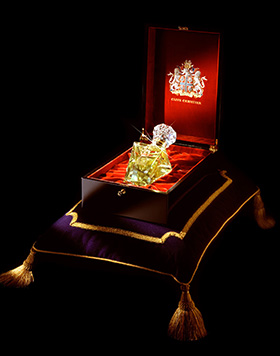When it comes to fragrances, there’s a bit of bias when it comes to price point and branding. Fragrance branding is a very sensitive thing. Though perfume lovers will all agree that it’s not about the brand, it’s about the smell itself, we can’t help but be a little bit swayed by branding and marketing.
One of the things I learned as a graphic artist is the compelling strength of good branding. For a very succinct example of branding power and price points I’ll take a page from graphic designer, David Airey who asks us to investigate people’s perceptions of an item’s value.
He told us to think of Aston Martin and Skoda, two car companies.
The first, Aston Martin, has a brand identity appealing to luxury, charm and the sophisticated man and woman. Aston Martin even goes so far as to reel in James Bond, a character who leads a dangerous, exciting, upper class and often glamorous life.
On the other side, the Skoda, a reliable, economical car with good mileage and reliability. Surely we aren’t going to be conjuring up images of James Bond, hopping into his Skoda and calculating his mileage while he does his taxes and picks up milk after a quiet day at the office.
So if you were given the choice between an Aston Martin or a Skoda (assuming you knew them by brand and money wasn’t an issue), which would you chose? I would venture that most of you would pick the Aston Martin.
And this is where things go back to perfume. Like it or not, branding has touched all of us for better or for worse. How many of us know fragrances by their brand? How many of us would pick a brand we never heard of over a brand we have? Or how many of us would pick a brand we know we like over a brand we’ve heard of but haven’t tried before?
And if we were each given a choice between a Chanel perfume or a Victoria’s Secret perfume, which would we chose? I bet the majority of us would take the Chanel fragrance for a variety of reasons. One of those reasons might just be the brand. After all, Chanel is about sophistication, luxury and high end fashion. When people think of Victoria’s Secret, they often think of underwear.
This is by no means a steadfast rule that applies to everyone, but it is a good idea to be aware of how companies and their approaches to marketing and branding themselves affects our perceptions of who they are and the quality of their product.
Just for fun, can you imagine if a company like Clive Christian (Oh, ye of the thousand dollar perfumes) stripped away their ultra luxurious exterior and started marketing affordable, fun, deodorant sprays to teenagers? You would see Clive Christian stands in drugstores with big pictures of cartoonish fruits hocking scents like “Radical Raspberry” or “Super Sweet Strawberry”. Maybe I’m getting a bit too giddy thinking about Clive Christian, taking a few steps away from the diamond-encrusted podium they’ve been standing on.
How about the bizarre scenario of the Axe Body Spray company all of a sudden deciding to put out a perfume based upon the classic chypre structure and marketed toward successful and distinctive men and women in their 40s and 50s? It’d be pretty strange, right? This is because people generally know of Clive Christian as that company that sells the most expensive perfume in the world and Axe Body Spray as that company that makes and sells those deodorant things that invade the hallways of high schools all over North America.
This preference for brands and perceptions of brands based on marketing isn’t our fault for being easily swayed or whatever. It is just how marketing works. And while there are a lot of fragrance marketing materials that turn off consumers (Marc Jacobs, I’m looking at you) or seem downright outrageous (Still looking at you, Marc Jacobs), the fact is branding sways us a bit more than most of us realize. We don’t have to be worried about this, but it wouldn’t hurt to be just a bit aware of how our perceptions are being changed and transformed every day.




